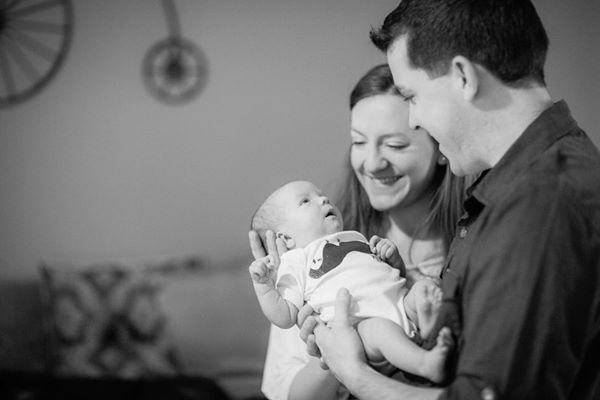

“Parenting kinda sucks. And it’s also the best thing ever. Often at exactly the same time.” – Brian Leaf, in Misadventures of a Parenting Yogi
I recently finished a fabulous parenting book from whence this quote came, titled Misadventures of a Parenting Yogi, written by Brian Leaf. In his parenting memoir, this papa of two boys shares his adventures in attempting to be an aware, authentic and mindful father. Written with wit and humour, Leaf winds us through his experiences of child-raising, from dating, to marriage, to birth, and through the various stages and queries of parenting, “attempting to study and apply the best holistic parenting advice [he] can find” (p.201).
When I began reading this book, I was delighted to find that not only was I enjoying it, laughing and smiling, “mmmhmmmm”ing and “aha”ing along with what I was taking in, but I was also exposed to a fantastic selection of parenting philosophies and advice from a wide range of child-rearing gurus. I was thrilled about this as, being a new-ish mother to a little one who didn’t come with a set of strict instructions, I was eager to learn from other’s experienced viewpoints, but wasn’t about to tow home a giant stack of thick books from the library on every different parenting philosophy. There’s just no way I am going to be able to read up in depth on all there is to delve into on the parenting front, while still finding time for my little munchkin, let alone myself.
I felt Leaf did a fantastic job of summarizing the main points of minds such as Cohen, Kohn, Faber, Mazlish, Ginott, Spock, Sears, Payne, Skenazy and more. Not only did he break down, in simplicity, these interesting and valuable views on purposeful and conscious parenting, but he also shares his own misadventures in trying them all out and choosing which of what parenting styles and suggestions work for his individual experience of raising his children. By reading my way through this relatively short (just over 200 page), entertaining series of “snackable” thoughts and trials of parenting methods, I felt more empowered and knowledgable in my own experience of guiding and supporting my little Z through her young journey of learning and growth.
I liked this book so much that I decided I wanted to share with you a few of my favourite points that I took from reading it. I also wanted to make this book more accessible for new parents and parents-to-be, so that you, too, might feel enlightened in finding some positive parenting methods to make life with young children more enjoyable, easier and more purposeful in how we help our children to grow, so I contacted Brain Leaf. I’m delighted to share that he was happy to collaborate with me in offering to give away a copy of his Misadventures of a Parenting Yogi for one of you lucky readers to enjoy. Make sure to enter using the Rafflecopter widget at the bottom of this post for your chance to win this awesome book that I could honestly go on and on about.
Make sure that, while you’re investing all this time and energy into making sure your little one is thriving, you’re also investing in yourself. You can’t be your best for your child if you’re falling apart at the seams from lack of self-care.
“Take care of yourself. Put on your own oxygen mask first, as they say. A healthy baby needs a healthy mom and dad” (Leaf, p.55).
[tweetthis]”Put on your own oxygen mask first, as they say. A healthy baby needs a healthy mom and dad.” – Brian Leaf #parenting[/tweetthis]
We shouldn’t beat ourselves up for our mistakes in parenting, and in the rest of life. What good does trying to prove to your child that you’re perfect do? Isn’t it better to show your child how to be a decent and realistic human being who owns up to their mistakes, learning and growing from them? Setting a realistic standard for our children, and modeling how to handle our mistakes, is an important part of parenting.
“I’d like to stop trying to be perfect. Instead, I’d like to model being human. To learn from my mistakes. To apologize when I mess up. My plan: forgive myself and move on” (Leaf, p.84).
[tweetthis]”I’d like to stop trying to be perfect. Instead, I’d like to model being human.” – Brian Leaf #parenting #momlife[/tweetthis]
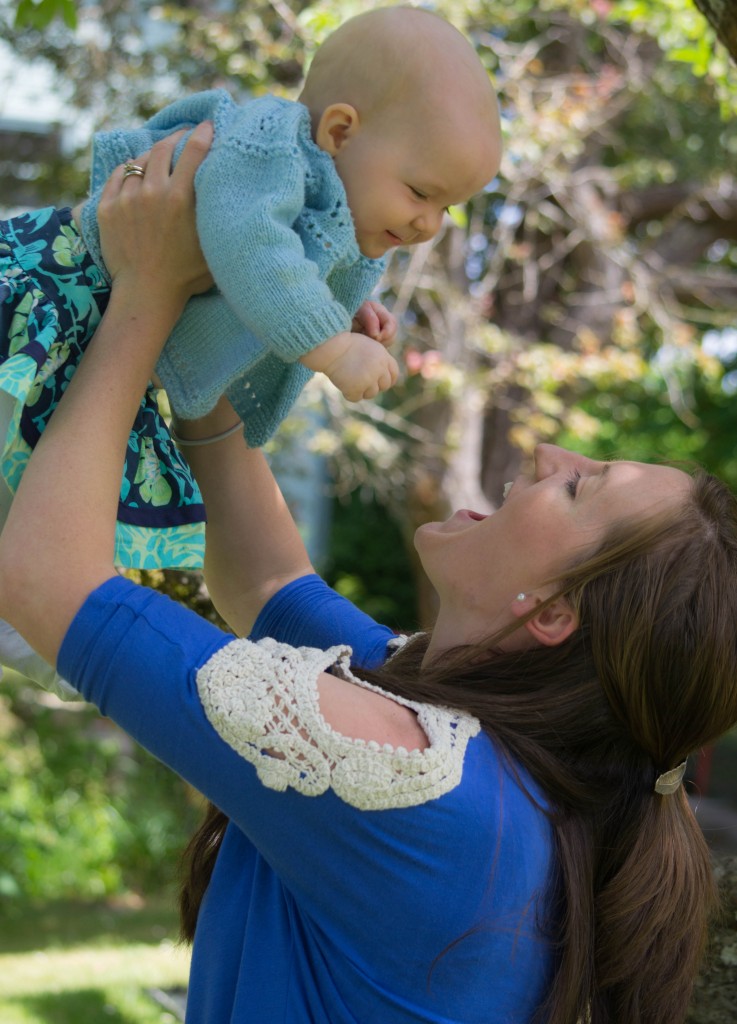 Have fun
Have fun“Cohen believes that all misbehaviour is really just a matter of disconnection. Kids want to be connected, and play re-establishes and strengthens this connection” (Leaf, p.140).
I’ve experienced first hand, many, many times, just how effective it can be to lighten the mood with playfulness and humour, switching a tense situation with children to a cooperative and enjoyable shared experience. We’ve known for a while now that children need play, learning and developing in so many ways while they are engaged in their play. Joining in as parents and playmates can enrich this experience, increase our understanding of each other, and strengthen our bond.
“In his wonderful book, Playful Parenting, Cohen posits that…we should encourage our kids to play and that we should get right down there on the floor with them. Cohen says that kids work out their feelings through play and that we can help. When little Billy kicks you, he is working out a feeling of some sort, and it’s more helpful for you to engage him than to shut him down” (Leaf, p.140).
[tweetthis]”Kids want to be connected, and play re-establishes and strengthens this connection.” – Brian Leaf #parenting #play[/tweetthis]
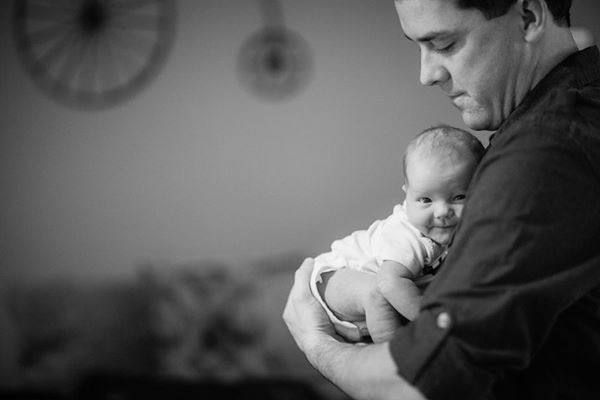
The single most important thing I think parents should do is trust that they know best what to do for their families. I found this to be a key point in the book, and something that continued to be stressed throughout Leaf’s writing.
Leaf shared Sear’s Seven B’s of Attachment Parenting, including ‘Beware of Baby Trainers’: “Ignore any advice that counters your parental instincts to nurture your baby” (p.55).
“In Spock’s own words, ‘the more people have studies different methods of bringing up children, the more they have come to the conclusion that what good mothers and fathers instinctively feel like doing for their babies is the best after all…If we have lost this instinctive ability that all animals have to care for their young, then bring on the glaciers and comets, because our epoch is done…It calms my anxiety and reminds me that if I go inward to find answers, and if I try my best, even when I’m overwhelmed and unsure, I’m probably doing just fine.”
This important point was also mentioned again and again in Leaf’s memoir. “Dr. Spock…told us simply, ‘Trust yourself. You know more than you think you do'” (p.xviii).
[tweetthis]”Ignore any advice that counters your parental instincts to nurture your baby.” – Brian Leaf #parenting #instinct[/tweetthis]
If we treat our children as more than mindless robots out to make our lives difficult, and carefully consider why children behave how they do, what they really need, and how we can respond to meet their needs and support their development on all fronts – physical, mental, social, and emotional – we have a better chance at building the kind of relationship that will make a difference in their developmental journey.
“We should really see our kids and respond from there.” “Instead of [using punishments or rewards], look at the situation and ask why she’s [doing x]…Really look. Not only at her behaviour. Look underneath. Ask why?…We can address the underlying issue. More than just applying a Band-Aid, we can guide, help, and really make a difference in the lives of our children. It’s about being conscious and taking children seriously. Having a relationship with them” (p.94).
[tweetthis]”It’s about being conscious and taking children seriously. Having a relationship with them.” -Brian Leaf #parenting [/tweetthis]
One of my favourite chapters was titled “How to Talk to Kids Will Listen and Listen So Kids Will Talk”. Here Leaf shares some insights from Ginott as well as Faber and Mazlish, about how to really listen to your children so they feel heard, and how to effectively communicate with them so you do, too. I recommend you check out all the detailed information and examples shared in this chapter, but to summerize: Listen, validate, label feelings, be informative rather than scolding, keep it short, and talk about your feelings.
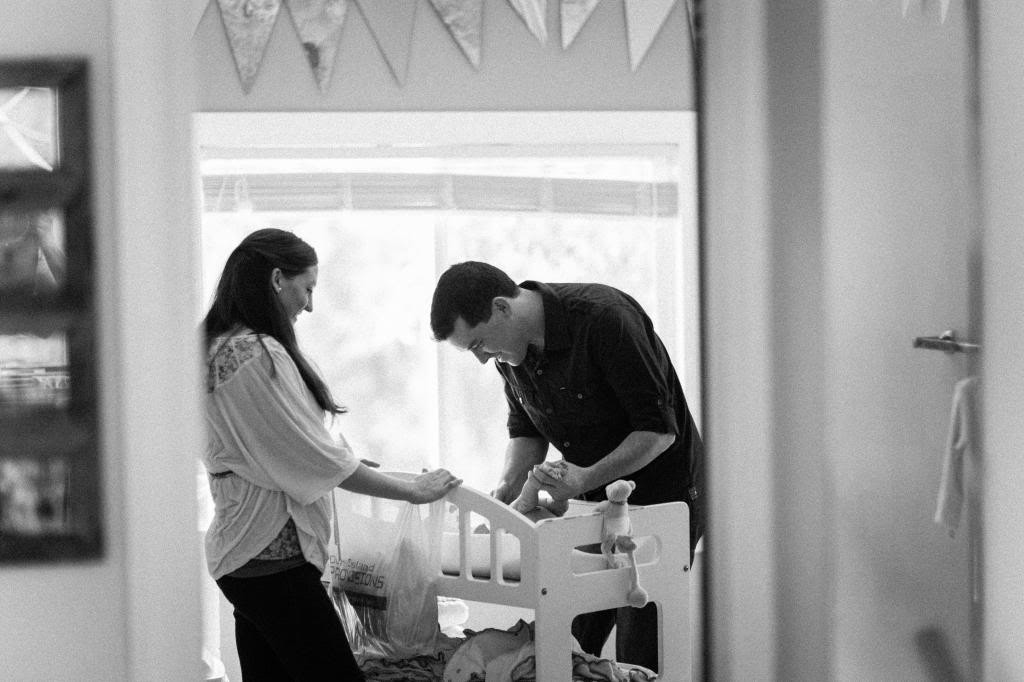
“Having kids exposes you to transcendent moments of love, connection, and happiness, but day to day, everyone is stressed, no one is sleeping, there hasn’t been sex in weeks or even months. This is why it is not a good time to make big life decisions” (p.160).
Raising a child and experiencing all of the stresses that come with that really takes a toll on relationships. If I thought the first year of marriage was a tough transition, this is nothing compared to the changes and emotions that come with sharing the responsibility of caring for and raising a small being that demands so much of you both. With all this stress, exhaustion, and change, combined with the intense roller coaster of hormones you experience during the first few years of parenting, it might be best to avoid making the decision to leave your partner until the dust has settled and everything is a bit clearer.
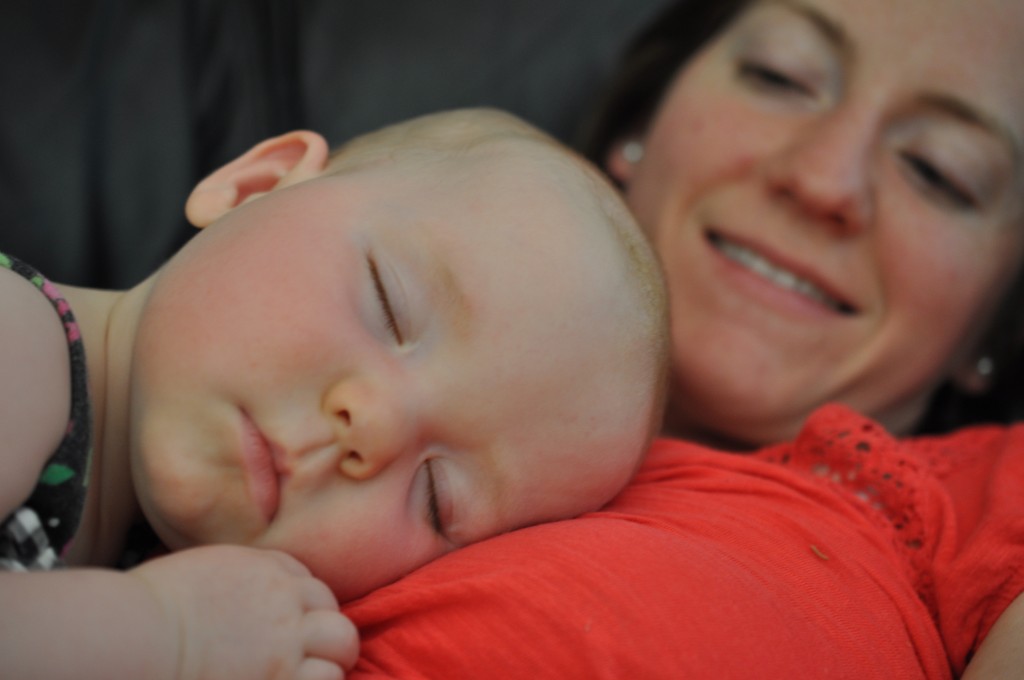
One of the most simple and useful pieces of parenting Leaf included in his book is an approach shared by Dad blogger David Vienna. The CTFD approach goes like this.
“Step 1: Calm the [funk] down.
Step 2: There is no second step.”
Seriously. Just calm down. Everything is going to be okay, and is likely to run smoother if you’re calm.
I highly recommend this book to parents of young children and parents-to-be. I got so much out of this book that reminded me of the kind of parent I want to be. The kind of parent I can be. We just need to remember that we’re human, and we’re doing our best.
“Make no mistake. I don’t have it all figured out. I’m about as neurotic as the next guy. Maybe just a bit more. And that’s why I know that another sure key to parenting is patience, compassion, forgiveness, and even faith, in my kids, of course, but also in myself” (Leaf, p.202).
So pop into the form below and enter to win a copy of Misadventures of a Parenting Yogi (US & Canada only, please), which will be sent to you directly from Brian Leaf himself. And if you want to go ahead and buy this book so you can get started reading right away, or pass to a friend in need of some reassurance and insight, you can buy Misadventures of a Parenting Yogi from Amazon here.
*Disclaimer: This is not a sponsored post. I have not been compensated to share this awesomeness with you. I am sharing it because I believe it is useful. However, I have included an associate link to the book on Amazon. If you purchase the book through this link, I will make a small commission, which will go to keeping this website up and running.*
2 thoughts on “The Best Parenting Advice – Misadventures of a Parenting Yogi”
This is a great post!! I think I need to sit down and play more, and stop trying to be perfect. Wait…scratch that…I need to do all of these things. It’s not easy, in the heat of a bad moment, to remember all these things but if they are in practice when it’s NOT a bad moment….maybe I can get there quicker. Thanks for this post, and I will share your giveaway on my social media too!
Thank you, Jenn! You are amazing! I really appreciate all of your awesomeness and support.
And yes, if these simple points are in practice in the day-to-day, it makes finding their comfort in the bad moments easier. But we’re all human! It seems like for everything I learn to do and try to practice, I forget something else. I often go back and read posts and think “Hey! Good point! But I wrote this so why can’t I remember it?”